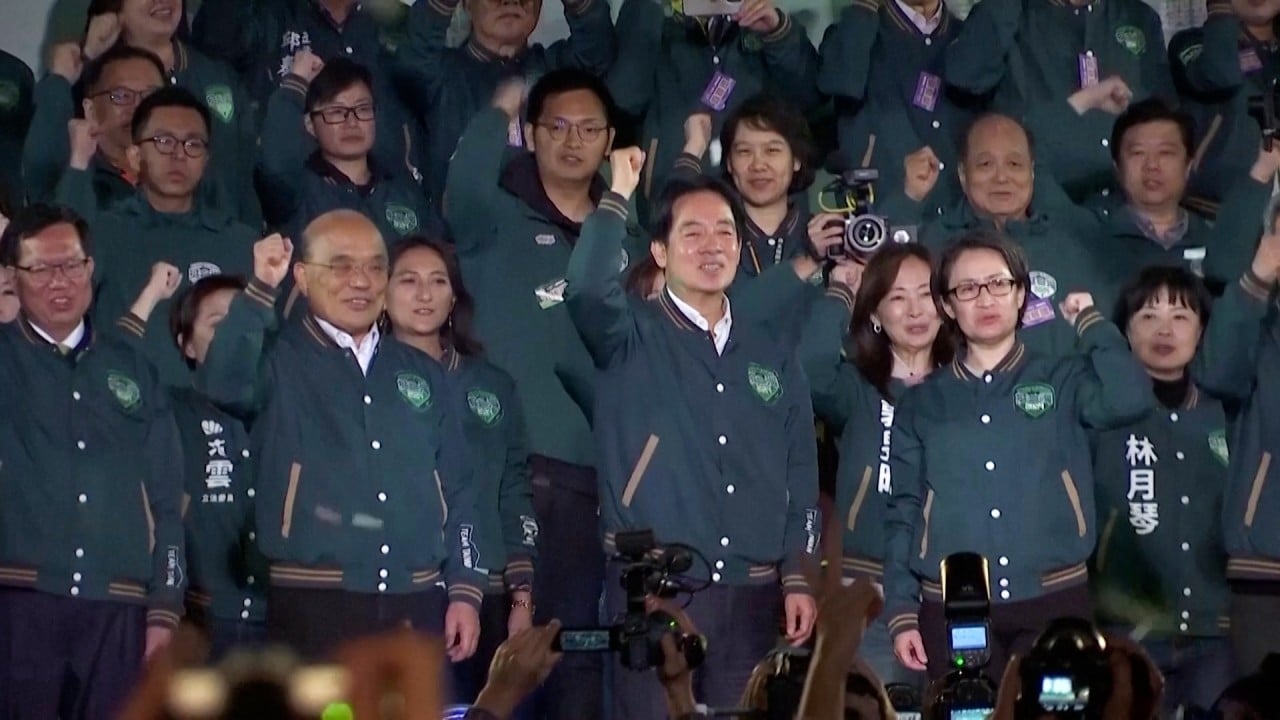
In Taiwan election wake, PLA resumes regular military activities near island
- Beijing stopped sending aircraft into the area on Saturday when William Lai won the Taiwanese presidential race
- PLA aircraft were back in action on Monday but not at noticeably higher levels than usual
But by Tuesday, mainland Chinese military activities had returned to usual levels, with PLA planes making 15 trips near Taiwan in the 24 hours until 6am on Tuesday, according to the Taiwanese defence ministry.
It was the highest number of sorties in five days.
The last time the PLA did not send any planes was nearly a month ago on December 16.
Some observers expected Lai’s win to prompt an uptick in the PLA activity.
Beijing has long branded Lai as a “troublemaker” for his position that Taiwan was already a sovereign country. It sees Taiwan as a breakaway province to be united with the mainland, by force if necessary. Most countries, including the United States, do not recognise Taiwan as an independent state, but Washington opposes any attempt by Beijing to take the island by force.
Lai has long been regarded as part of the “deep green” wing of his Democratic Progressive Party, which is more supportive of Taiwan independence. Although he said he would continue President Tsai Ing-wen’s cross-strait policy, his election victory has spurred fears of worsening ties with Beijing.
Jean-Pierre Cabestan, an emeritus professor at Hong Kong Baptist University, said the PLA’s election day lull “was aimed to let people vote”.
Cabestan said the PLA was also waiting on Sunday for Chinese President Xi Jinping and the party to assess the election outcome, sending just six planes and four ships near Taiwan. Of those, only a drone crossed into Taiwan’s self-declared effective air defence identification zone, which excludes the mainland side of the Taiwan Strait median line.
Amanda Hsiao, a senior China analyst with the International Crisis Group, said entries into the zone ebbed in the months leading up to the election but it was too early to say if the recent drop-off reflected Beijing’s response to the election result.
Beijing has been trying to downplay the DPP’s victory, saying the election result – where Lai and running mate Hsiao Bi-khim, secured 40 per cent of the vote – did not represent the views of most Taiwanese.
In the latest issue of the influential Communist Party journal Qiushi published this week, President Xi Jinping also wrote that the party must expand forces advocating for reunification of China and “win the people’s hearts” in Taiwan.
These activities come under the banner of “united front” work, which involves ensuring Chinese nationals and ethnic Chinese around the world become and stay loyal to the party.
In Taiwan, the united front efforts have done little to shift public opinion to favour unification.
Only 6.8 per cent of Taiwanese support unification as soon as possible or after a period of keeping the status quo, according to a National Chengchi University survey in October, conducted for the Taiwanese government’s Mainland Affairs Council.
Hsiao and Cabestan said Beijing was unlikely to react militarily to a trip to Taipei by a delegation of former US officials for talks with Tsai and Lai on Monday.
The foreign ministry in Beijing did warn Washington to recognise the sensitivity of the Taiwan issue and not to send “wrong signals” to independence advocates.
Hsiao said a strong military response to the delegation was unlikely, given the clear signalling from Washington of its intentions.
“Washington has been pretty careful in the lead-up to these elections and after, to ensure that those intentions have been made clear in public,” she said.
Washington announced the trip before the election and is not the first of its kind. The US State Department said last week that the purpose of the trip was to tell the new Taiwanese administration what the US’ one-China policy “is and what it is not” with a view of stabilising cross-strait ties.
“So Beijing must be happy, particularly after [Joe] Biden’s statement that the US does not support Taiwan independence,” Cabestan said of the US president’s statement after the election widely seen to calm Beijing’s nerves.
“Beijing does not trust Lai at all, even less than Tsai,” he said, adding that Beijing’s response to Lai’s presidency would depend on his inauguration speech and his actions. “Listen to his words and watch his actions, as the Chinese saying goes.”


